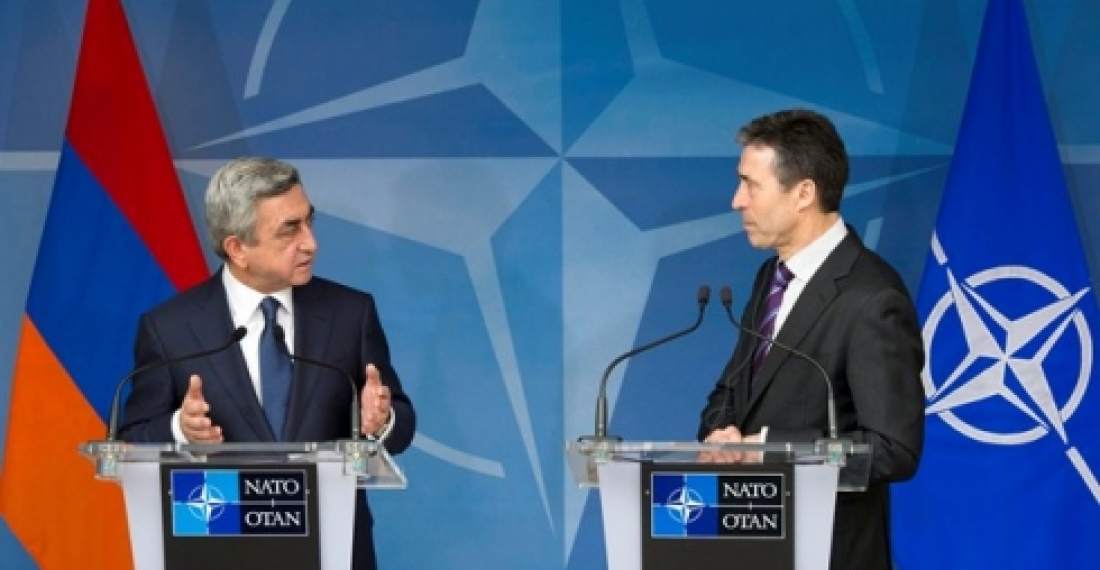Of the three countries in the South Caucasus, Armenia was at first the most reluctant to establish relations with NATO. Its special relations with Russia and its membership in the Collective Security Treaty Organisation made it more cautious in its relationship with the Atlantic Alliance. A sign that things may be changing was the visit yesterday of Armenian President Serzh Sargsyan to NATO Headquarters in Brussles.
The President met the Secretary General of NATO Anders Fogh Rasmussen, and addressed the representatives of the NATO member states gathered in the North Atlantic Council.
In a press comment Rasmussen said “NATO and Armenia share many political priorities and security interests”. He added, ”and we have built up our cooperation and dialogue over many years. Our relationship contributes to regional security and Euro-Atlantic security. And we want to take it forward in that way”.
On his part the Armenian President expressed his country's willingness to continue co-operation with NATO. Sargsyan said "I am also glad that the Secretary General and NATO overall highly value Armenia’s efforts in maintaining global peace and security. We realize that current threats and challenges can be defeated only through our collective efforts. For that very reason, last summer we tripled the number of the Armenian troops participating in the international force which support security in Afghanistan."
During his visit to Brussels the Armenian leader is also expected to meet the leadership of the European Union.
source: commonspace.eu
photo: The President of Armenian Serz Sargsyan at the Headuqarters of NATO in Brussels on 6 March 2012. (picture courtesy of the NATO Press and Information Service).







